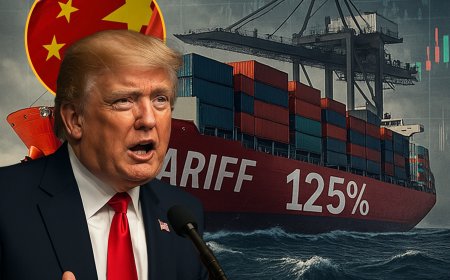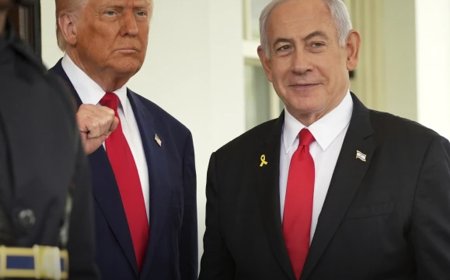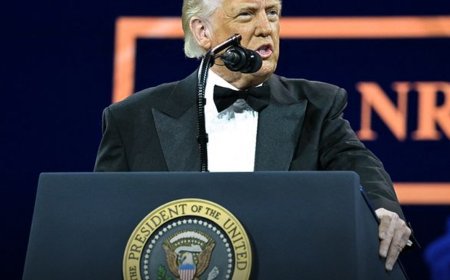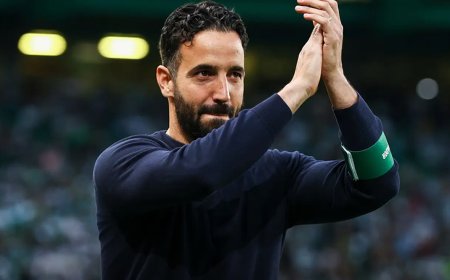Netanyahu’s D.C. Visit Falls Flat: Trump Pushes Back on Israel’s Key Demands
In a high-stakes trip to Washington, Israeli Prime Minister Benjamin Netanyahu sought reassurance and results. Instead, his face-to-face with President Donald Trump revealed growing gaps between two longtime allies on some of the world’s most critical geopolitical flashpoints.
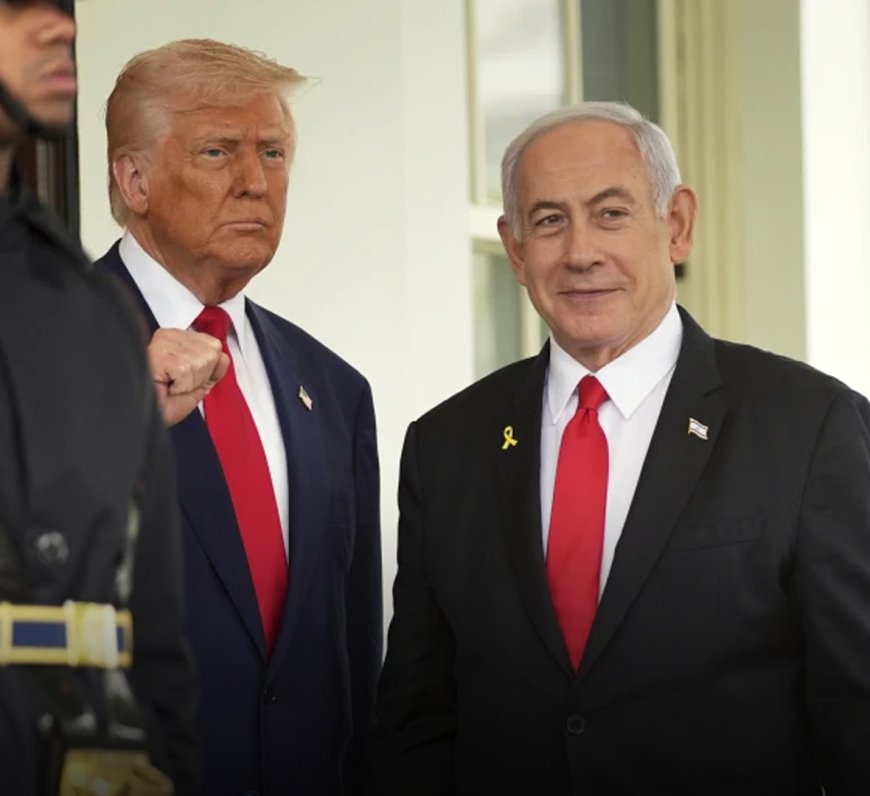
TEL AVIV, ISRAEL (Updated) — In a high-stakes trip to Washington, Israeli Prime Minister Benjamin Netanyahu sought reassurance and results. Instead, his face-to-face with President Donald Trump revealed growing gaps between two longtime allies on some of the world’s most critical geopolitical flashpoints.
Originally framed as an urgent diplomatic mission to address Trump’s new global tariff regime, Netanyahu’s second visit under Trump’s second term turned out to be more complex — and more humbling — than expected. Behind the Oval Office handshakes and compliments lay several points of tension that left the Israeli delegation concerned.
1. Diverging Paths on Iran

In this photo provided by the Israeli army, armed Israeli Air Force planes depart from an unknown location to attack Iran on Oct. 26, 2024.
Netanyahu has consistently advocated for a hardline approach on Iran’s nuclear ambitions, including military options. He played a central role in pushing Trump to abandon the Obama-era nuclear deal in 2018.
But on Monday, while Trump hinted at possible U.S. military action if Iran fails to negotiate, he also announced upcoming talks with Tehran — a direct contradiction to Netanyahu’s hawkish stance. While the Israeli PM nodded in support of a diplomatic solution, he made clear it should resemble Libya's 2003 denuclearization deal — an extremely high bar that may not align with Trump’s plans.
This moment highlighted a significant disconnect: while both leaders oppose a nuclear Iran, they’re no longer aligned on how to get there.
2. Tariffs and Trade Troubles
Israel hoped its decision to scrap tariffs on American imports would shield it from Trump’s sweeping global levies — but that hope was dashed. During the meeting, Trump stood firm, imposing a 17% tariff on Israeli goods despite Netanyahu’s pleas.
Trump’s response was blunt: “We give Israel $4 billion a year. That’s a lot.” In his view, the U.S. already does enough — a signal that economic favors may no longer come easily, even to close allies.
Netanyahu’s trip set a precedent as the first global leader to confront Trump on his tariffs, but he left Washington with little to show for it.
3. Syria and the Turkey Tangle

An Israeli soldier loads a tank near the so-called Alpha Line that separates the Israeli-annexed Golan Heights from Syria, in the town of Majdal Shams, Dec. 11, 2024.
Another unexpected blow came when Netanyahu raised alarm over Turkey’s growing presence in post-Assad Syria — especially its military bases near Israeli borders. Trump, rather than echoing Israel’s concerns, praised Turkish President Erdogan for “taking over Syria” and urged Netanyahu to be “reasonable.”
This softer stance toward Turkey stunned the Israeli side. For years, Israel has considered Turkey’s increasing influence in Syria and criticism of the Gaza war a strategic threat. The absence of a strong U.S. condemnation left Israeli officials rattled.
4. Gaza War: The Quiet Rift

Smoke rises to the sky following an Israeli bombardment in the Gaza Strip as seen from southern Israel, Monday, April 7, 2025.
Though the war in Gaza took a backseat in public remarks, subtle signs indicated diverging intentions. Netanyahu reiterated Israel’s commitment to defeating Hamas and showed little urgency to end the conflict. Trump, however, expressed a desire to see the war conclude soon and hostages released.
In a potentially revealing moment, Trump floated his controversial idea of “owning Gaza” and removing its Palestinian population — a radical notion that’s gained political traction in Israel. Netanyahu offered no public rejection, but also no endorsement.
Behind closed doors, insiders say the tone was friendly but firm. The White House visit, though wrapped in diplomacy, underscored how Israel’s expectations under Trump 2.0 might no longer be met with automatic affirmation.
Expert Take: A Shift in Tone

People take part in a protest demanding the immediate release of hostages held by Hamas in the Gaza Strip, in Tel Aviv, Israel, Saturday, April 5,2025.
“There’s no unconditional love here,” said Udi Sommer, a Tel Aviv University expert in U.S.-Israel relations. “It is contingent on Israel behaving a certain way.”
Political analyst Nadav Eyal echoed this: “Netanyahu didn’t hear exactly what he wanted to hear, so he returns back home with very little.”
Though Netanyahu later described the trip as “very good,” internal sources admit it was more damage control than diplomacy — and the gap between public optics and private outcomes couldn’t be wider.
What's Your Reaction?







